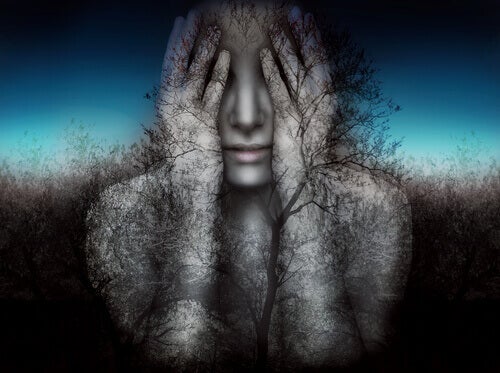All my pain will be rewarded. Life will put everyone in its place, especially to all who have betrayed me, I need to suffer because one day I will have reward, now I cannot enjoy life, but one day this opportunity will come because the universe or God knows all the evil I have passed, all the sadness I suffer helps me, because the good suffer and are the ones who earn the most in the end.
Perhaps these phrases are familiar to you, you could say that they are part of a speech that is repeated over the years, it is such a popular discourse that, of course, we all had it as a temptation at some point, or even adopted it as ours. It is the conviction that happiness will be a reward for our suffering, not the actions we actively and pleasantly undertake, is the emotional legacy of our Judeo-Christian roots. The one who is good suffers for himself, and for others.
- In the clinical field of psychology there is a large percentage of depressed patients with this totally irrational idea activated in everything they do in their life.
- This is called the “divine reward error.
- ” which is nothing more than believing that our “Good deeds must be rewarded with a magical and irrational agent.
You don’t have to wait for opportunities, you have to create them, take advantage of them and take advantage of them, it requires determination, determination and firmness, in this life you have to put limits on abuse: what others do with you and with which you apply yourself.
Pain and discouragement are part of life, and accepting them will give you emotional health to know how to tolerate and face them, to prevent them from becoming a chronic and dysfunctional feeling, yet sometimes we adopt suffering as a true way of life.
We settle into denunciation and victimization because we feel that life does not meet the principle of reciprocity, because sometimes when we give a hug it punches us, as if life is at the mercy of our desires, as if life were not a source. unpredictable and arbitrary facts based on their own laws, strange and indecipherable.
If karma were in fact more powerful than our righteous and righteous actions, evil and manipulative people would constantly suffer from those who suffer harm and not the other way around. You just have to look around to realize that the world is far from right. and rewarding those who suffer. So how do we act?
To think that if you’re having a hard time and you’re suffering your life will give you all the good things you need and deserve is to think that if I take a part and say it’s money, I can buy anything. It is a somewhat delusional and destructive belief that we impose on ourselves, as if suffering were a kind of blessing.
Many people are frightened when things are calm and well, they find themselves in a constant state of vigilance and dissatisfaction, as if it were the attitude that would most report them, as if constantly thinking about the bad things that can happen bring greater future happiness.
“We must be suffering, sensitive, little will be forgiven with critical sense and satire. They made us suffer and sympathize with others and be pious. And suffering doesn’t make us stronger, but it generally weakens us. Like poverty, which instead ” of only causing anger, resentment and revolutionary spirit, weakens us, takes away our capacity for reaction and takes away our strength. -Marta Sanz-
From the systemic perspective of psychology we analyze the attachment to this way of thinking and acting, which often originates in messages from within the family itself. Punishment teaches children nothing if it is not accompanied by constructive practice.
The child must understand that to remedy something he has done wrong, he must repair what he has damaged or do something positive that compensates for this attitude, immediately and according to undesirable behavior, if we simply punish him for his suffering, he will understand that the reparation of the damage lies in the resistance to suffering imposed on him by the punishment. We have internalized from children that passive suffering is just.
If you want something better for your life, use the strategies and skills you have to achieve it. Sitting around waiting for the world to identify your pain to reward you is a mistake.
Depression is often based on this learned feeling of helplessness: we think that nothing we do is going to make things better, because it has never happened before. It’s time to reflect on your past strategies. If you had a passive attitude in the face of adversity and threw in the towel before the slightest difficulty or if you actively faced them.
Suffering often brings more suffering, it is a matter of inertia, it weakens our immune system, which no longer has energy for situations of real danger, because we constantly put ourselves on a level of vigilance, mistrust and tension.
An inner pain that we want to change one day, when the only way to improve is not to wait for things to happen and reward us only because we have suffered. If you want incentives, you have to look for them. Sadness and inaction are addictive. Stop suffering, it doesn’t make you a better person, it just hurts yourself and the people who care about you.

